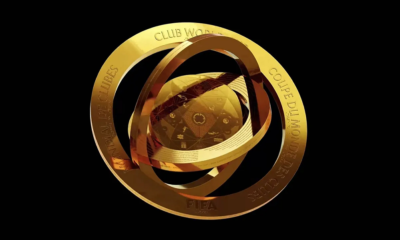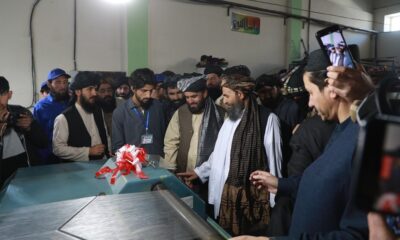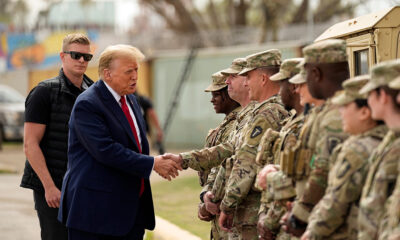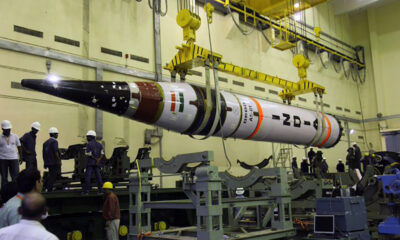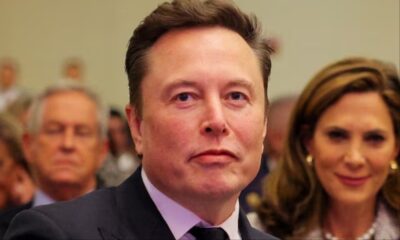Health
US, Hungarian scientists win Nobel Prize for research that led to Covid vaccines
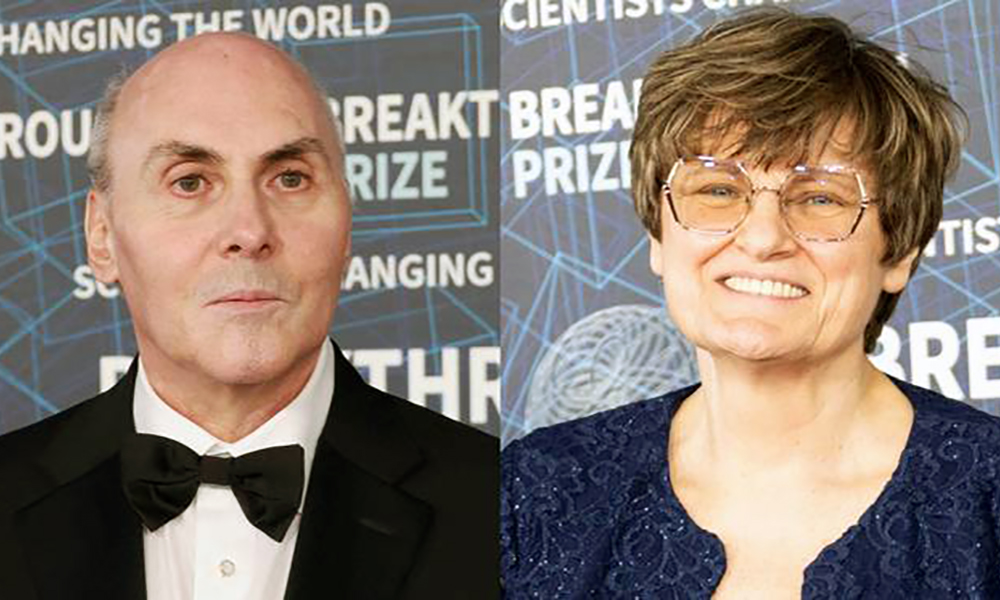
Scientists Katalin Kariko of Hungary and Drew Weissman of the United States respectively won the 2023 Nobel Prize in Physiology or Medicine for discoveries enabling the development of mRNA Covid-19 vaccines, the award-giving body has announced.
"The 2023 Nobel Prize in Physiology or Medicine has been awarded to Katalin Kariko and Drew Weissman for their discoveries concerning nucleoside base modifications that enabled the development of effective mRNA vaccines against Covid-19," the body said on Monday
The prize, among the most prestigious in the scientific world, is selected by the Nobel Assembly of Sweden's Karolinska Institute Medical University and also comes with 11 million Swedish crowns (about $1 million).
Kariko was senior vice president and head of RNA protein replacement at BioNTech until 2022 and has since acted as an adviser to the company. She is also a professor at the University of Szeged in Hungary and adjunct professor at the University of Pennsylvania’s Perelman School of Medicine.
Weissman is professor in vaccine research at the Perelman School.
Kariko found a way to prevent the immune system from launching an inflammatory reaction against lab-made mRNA, previously seen as a major hurdle against any therapeutic use of mRNA.
Together with Weissman, she showed in 2005 that adjustments to nucleosides, the molecular letters that write the mRNA’s genetic code, can keep the mRNA under the immune system’s radar.
'Major impact on society'
"So this year's Nobel Prize recognises their basic science discovery that fundamentally changed our understanding of how mRNA interacts with the immune system and had a major impact on society during the recent pandemic," said Rickard Sandberg, member of the Nobel Assembly at Karolinska Institute
The medicine prize kicks off this year's awards with the remaining five to be unveiled in the coming days.
The prizes, first handed out in 1901, were created by Swedish dynamite inventor and wealthy businessman Alfred Nobel, and are awarded for achievements in science, literature and peace, and in later years also for economics.
The Swedish king will present the prizes at a ceremony in Stockholm on Dec. 10, the anniversary of Nobel's death, followed by a lavish banquet at city hall.
Last year's medicine prize went to Swede Svante Paabo for sequencing the genome of the Neanderthal, an extinct relative of present-day humans, and for discovering a previously unknown human relative, the Denisovans.
Other past winners include Alexander Fleming, who shared the 1945 prize for the discovery of penicillin, and Karl Landsteiner in 1930 for his discovery of human blood groups.
Health
UNICEF ensures 6.1 million people have access to basic health services in Afghanistan

More than six million people accessed essential health and nutrition services at UNICEF-supported health facilities last month, the UN agency said in its latest Humanitarian Situation Report for September 1 to 30.
UNICEF said of the 6.1 million people who accessed essential health and nutrition services, half of them were children under the age of five.
In addition, 50 schools in 10 provinces gained access to safe water, handwashing facilities, and newly constructed or rehabilitated toilet facilities.
However, as of September, UNICEF’s Humanitarian Action for Children (HAC) appeal for children in Afghanistan is only 41 percent funded.
Afghanistan remains one of the world’s largest humanitarian crises, with 23.7 million people in need of humanitarian assistance following decades of conflict, extreme climate shocks, and severe economic decline.
UNICEF also stated that this year, 33 percent of the population receives most of their income from unsustainable income sources, compared to 26 percent in 2023.
Health
Polio vaccination campaign kicks off in Afghanistan

Public Health Ministry officials have confirmed that a polio vaccine campaign across 16 provinces was launched on Monday.
Sharaft Zaman Amarkhil, the spokesperson of the Ministry of Public Health, says that the campaign got underway on Monday in a number of provinces including Kabul, Kandahar, Helmand, Uruzgan, Zabul, Farah, Nangarhar, Laghman, Kunar, Nuristan and some other provinces.
Amarkhil said the campaign will last for three days and an estimated 6.2 million children under the age of five will receive the anti-polio vaccine.
Zaman called on parents, religious scholars and ethnic elders to cooperate with the ministry's vaccinators in implementing the anti-polio vaccination campaign for children under five years old in the mentioned provinces.
The World Health Organization meanwhile published its latest Polio Bulletin on Monday and confirmed Afghanistan has recorded 23 cases of Wild Polio Virus so far this year.
Pakistan meanwhile reported two new cases this week - one in Khyber Pakhtunkhwa province and the other in Balochistan province.
Pakistan has recorded a total of 41 cases of polio so far this year, bringing the total between the two countries to 64, against last year’s total of 12 (Afghanistan 6 and Pakistan 6).
World Polio Day
Marking World Polio Day last week, UNICEF pointed out that the current data issues a stark warning that the life-threatening disease continues to thrive in areas where conflict, natural disasters, humanitarian crises, and other destabilizing factors make it difficult to deliver critical healthcare.
“In conflict, children face more than bombs and bullets; they are at risk of deadly diseases that should no longer exist,” said UNICEF Executive Director Catherine Russell.
“In many countries, we are witnessing the collapse of healthcare systems, destruction of water and sanitation infrastructure, and the displacement of families, triggering a resurgence of diseases like polio. Children are being left paralyzed, unable to walk, play, or attend school."
A global decline in childhood immunization has also led to an increase in polio outbreaks, including in countries that had been polio-free for decades.
Nowhere is this more evident than in conflict-affected areas, with 15 out of 21 such countries – including Afghanistan, Democratic Republic of Congo, Somalia, South Sudan, and Yemen – currently battling polio.
In recent months, UNICEF and partners have intensified emergency responses to surges in polio outbreaks.
In Gaza, for example, UNICEF, in partnership with WHO, reached nearly 600,000 children under 10 years during the first round of a polio vaccination campaign in mid-September. The second and final round has been successfully implemented in south and central Gaza, but renewed mass displacement and bombings have delayed the process in the north.
The campaign follows the return of polio to Gaza for the first time in 25 years.
Health
AIJU seals deal with private hospital for Afghan media workers
The MoU was signed during a ceremony in Kabul on Tuesday, between Hojatullah Mujadadi, the head of the union, and the director of the private hospital Abdullah Yousafzai.

The Afghanistan Independent Journalists Union (AIJU) says it has signed a three-year memorandum of understanding (MoU) with a private hospital in Kabul to provide discounted health services to journalists.
The MoU was signed during a ceremony in Kabul on Tuesday, between Hojatullah Mujadadi, the head of the union, and the director of the private hospital Abdullah Yousafzai.
Mujadadi welcomed the move and said this was part of the union’s efforts to ensure media workers are provided with adequate health services.
According to the AIJU, media workers and their immediate families, which include their parents, siblings, spouse and children, will be entitled to substantial discounts for medical treatment at the hospital.
The AIJU said charges would be discounted by between 50% and 70% for media workers.
-

 World4 days ago
World4 days agoBiden is sending aid to help Ukraine keep fighting next year, Blinken says
-
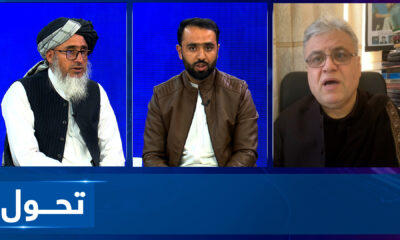
 Tahawol4 days ago
Tahawol4 days agoTahawol: NATO’s concern over proximity of Russia & North Korea discussed
-
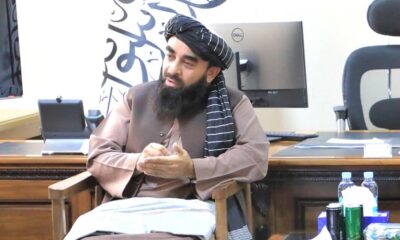
 Latest News4 days ago
Latest News4 days agoIEA committed to freedom of media within Islamic principles: Mujahid
-
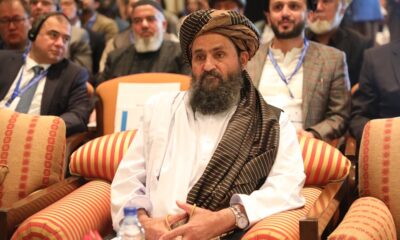
 Latest News4 days ago
Latest News4 days agoIEA prioritizing poverty reduction and job opportunities, says deputy PM
-
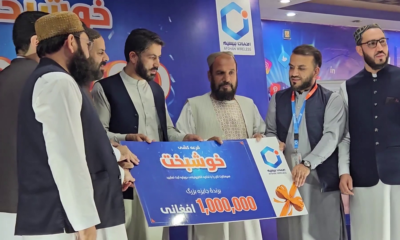
 4 days ago
4 days agoAWCC customer in Kandahar wins 1 million AFN in ‘lucky lottery’
-

 Latest News4 days ago
Latest News4 days agoIEA cuts mobile phone and internet rates
-
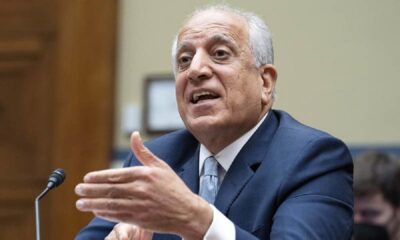
 Latest News4 days ago
Latest News4 days agoKhalilzad: Turning our back on Afghanistan would not be wise
-
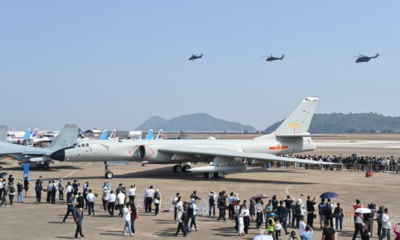
 World5 days ago
World5 days agoChina’s largest air show off to flying start with fighter jets and attack drones


